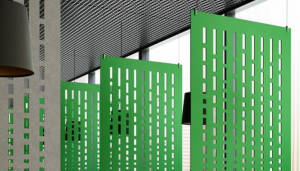When it comes to creating a peaceful and quiet environment in your home or office, wall soundproofing is an essential step. Whether you want to block out noisy neighbors, reduce the sound of traffic, or create a more private space, understanding the basics of soundproofing is crucial.

Soundproofing your walls provides numerous benefits, including:
- Enhanced privacy: By reducing sound leakage, soundproofing allows you to enjoy a more private and confidential space.
- Noise reduction: Soundproofing helps block out external noises, creating a quieter and more peaceful atmosphere.
- Improved acoustics: If you use the room for music, recording, or conferences, soundproofing can enhance the quality of sound within the space.
Common problems with sound leakage
Many everyday materials used in wall construction can allow sound to pass through easily, leading to sound leakage. Some common problems include:
- Thin walls: Thin walls are more prone to sound transmission, causing noise to easily pass through.
- Gaps and cracks: Poorly sealed walls can create gaps and cracks, allowing sound to leak in and out of the room.
- Insufficient insulation: Inadequate insulation in the walls can result in poor soundproofing, as insulation helps absorb and block sound waves.
To effectively soundproof your walls, it’s important to address these issues and use appropriate soundproofing materials and techniques. Whether you choose to add soundproofing panels, insulation, or seal gaps, taking the time to properly soundproof your walls will provide a more peaceful and enjoyable space.
Understanding Soundproofing Materials
When it comes to wall soundproofing, understanding the different types of materials available is crucial for getting the job done right. By selecting the right soundproofing material for your walls, you can effectively reduce noise transmission and create a quiet and peaceful environment in your home or office.
Different types of soundproofing materials
- Acoustic Panels: These panels are designed to absorb sound waves and reduce echo in a room. They are commonly made of sound-absorbing materials like foam or fiberglass and can be installed on the walls to enhance sound insulation.
- Mass Loaded Vinyl: This material is excellent for blocking noise and is often used in construction projects. It is a dense vinyl sheet that can be applied to walls to reduce sound transmission.
- Soundproof Drywall: Soundproof drywall is specially designed to inhibit sound transmission. It contains multiple layers of gypsum board and sound-damping compounds, making it an effective choice for soundproofing walls.
Choosing the right material for your walls
To choose the right soundproofing material for your walls, consider factors like your budget, the level of noise you want to block, and the type of construction. It is recommended to consult with a professional or seek expert advice to ensure you select the best material for your specific needs.
Remember, proper installation is crucial for the effectiveness of the soundproofing material. Hiring a professional for installation may be necessary to ensure a successful and efficient soundproofing project.
Preparing the Walls for Soundproofing
Proper preparation is key to achieving the desired wall soundproofing results. By identifying weak points and sealing gaps and cracks, you can significantly reduce noise transmission.
Identifying weak points in the walls
To effectively soundproof your walls, start by identifying the areas where sound is most likely to pass through. These weak points may include electrical outlets, door and window frames, and any gaps or openings in the walls. By locating these areas, you can target them for soundproofing measures.
Sealing gaps and cracks
Once you have identified the weak points, it’s important to seal any gaps or cracks in the walls. This can be done using materials such as caulk, weatherstripping, or acoustic sealant. By filling these openings, you can prevent sound waves from traveling through and minimize noise leakage.
Taking the time to properly prepare your walls before soundproofing is essential for achieving optimal results. By identifying weak points and sealing gaps and cracks, you can create a more peaceful and quiet environment in your home or office.
Conclusion
When it comes to soundproofing walls, it is essential to understand the benefits and techniques to ensure a peaceful and quiet home environment.
Benefits of properly soundproofing walls
- Noise reduction: Soundproofing walls can significantly minimize noise transmission, whether it’s from outside traffic, neighbors, or internal sources within your home.
- Improved privacy: By soundproofing walls, you can create a more private space where conversations and activities remain confidential.
- Better sleep quality: Soundproofing walls can help reduce disruptive noises, improving sleep quality and overall well-being.
- Enhanced productivity: Minimizing noise distractions in home offices or study areas can lead to increased focus and productivity.
Properly soundproofing walls is vital for enjoying a calm and serene living space. By reducing noise levels and increasing privacy, it can contribute to better sleep, improved concentration, and overall peace of mind. Whether you live in a noisy city or simply want to create a tranquil environment, soundproofing walls can make a significant difference in your quality of life.
